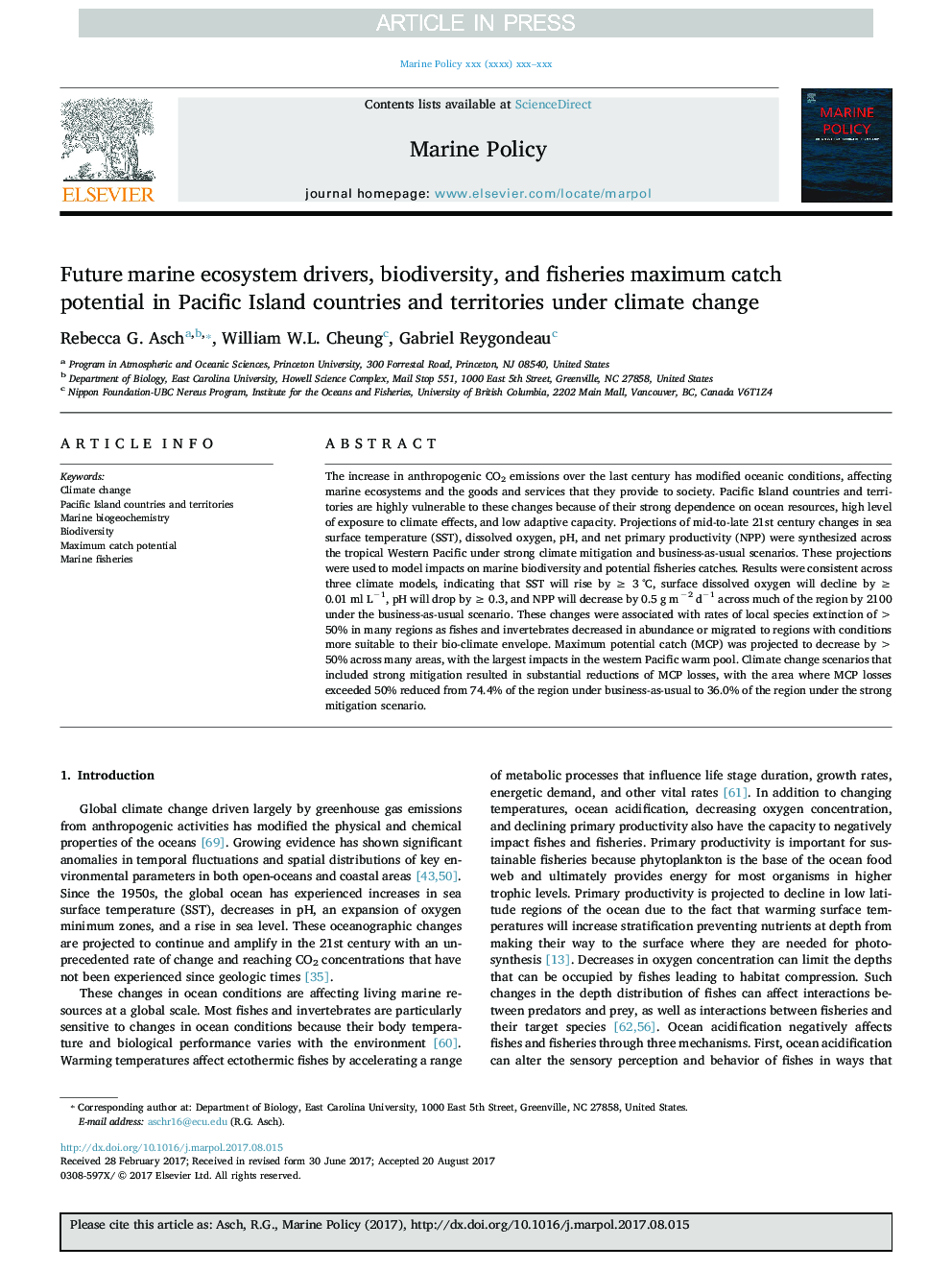| کد مقاله | کد نشریه | سال انتشار | مقاله انگلیسی | نسخه تمام متن |
|---|---|---|---|---|
| 7488390 | 1485491 | 2018 | 10 صفحه PDF | دانلود رایگان |
عنوان انگلیسی مقاله ISI
Future marine ecosystem drivers, biodiversity, and fisheries maximum catch potential in Pacific Island countries and territories under climate change
ترجمه فارسی عنوان
رانندگان اکوسیستم دریایی آینده، تنوع زیستی، و حداکثر توانایی گرفتن ماهیگیری در کشورهای اقیانوس آرام و مناطق تحت تغییرات آب و هوایی
دانلود مقاله + سفارش ترجمه
دانلود مقاله ISI انگلیسی
رایگان برای ایرانیان
کلمات کلیدی
تغییر آب و هوا، کشورهای جزایر اقیانوس آرام و مناطق، بیوگرافی شیمی دریایی، تنوع زیستی، حداکثر پتانسیل گرفتن، ماهیگیری دریایی،
موضوعات مرتبط
مهندسی و علوم پایه
سایر رشته های مهندسی
مهندسی دریا (اقیانوس)
چکیده انگلیسی
The increase in anthropogenic CO2 emissions over the last century has modified oceanic conditions, affecting marine ecosystems and the goods and services that they provide to society. Pacific Island countries and territories are highly vulnerable to these changes because of their strong dependence on ocean resources, high level of exposure to climate effects, and low adaptive capacity. Projections of mid-to-late 21st century changes in sea surface temperature (SST), dissolved oxygen, pH, and net primary productivity (NPP) were synthesized across the tropical Western Pacific under strong climate mitigation and business-as-usual scenarios. These projections were used to model impacts on marine biodiversity and potential fisheries catches. Results were consistent across three climate models, indicating that SST will rise by ⥠3 °C, surface dissolved oxygen will decline by ⥠0.01 ml Lâ1, pH will drop by ⥠0.3, and NPP will decrease by 0.5 g mâ2 dâ1 across much of the region by 2100 under the business-as-usual scenario. These changes were associated with rates of local species extinction of > 50% in many regions as fishes and invertebrates decreased in abundance or migrated to regions with conditions more suitable to their bio-climate envelope. Maximum potential catch (MCP) was projected to decrease by > 50% across many areas, with the largest impacts in the western Pacific warm pool. Climate change scenarios that included strong mitigation resulted in substantial reductions of MCP losses, with the area where MCP losses exceeded 50% reduced from 74.4% of the region under business-as-usual to 36.0% of the region under the strong mitigation scenario.
ناشر
Database: Elsevier - ScienceDirect (ساینس دایرکت)
Journal: Marine Policy - Volume 88, February 2018, Pages 285-294
Journal: Marine Policy - Volume 88, February 2018, Pages 285-294
نویسندگان
Rebecca G. Asch, William W.L. Cheung, Gabriel Reygondeau,
